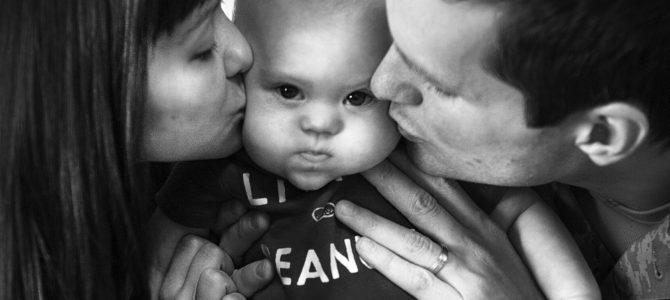
March 21 is World Down Syndrome Day. It is a day for advocacy but also celebration. Families of children with Down syndrome talk about “the best club you never wanted to be in.”
The evidence backs them up. A 2007 study of hundreds of thousands of marriages reported that divorce rates in families of children with Down syndrome were more than 3 percent lower than in other families. A 2011 study surveyed almost 1,000 brothers and sisters about their siblings with Down syndrome, and 94 percent over age 11 expressed feelings of pride about their siblings. Almost 90 percent felt they were better people because of them. In a related study, 99 percent of about 280 people with Down syndrome indicated they were happy with their lives.
Sounds like a swell club. Yet in the United States and many European countries, the vast majority of parents who receive a prenatal Down syndrome diagnosis terminate the pregnancy. The United States is even on the “low” side, with an estimated abortion rate of about 70 percent for babies diagnosed with Down syndrome.
On February 28, Utah’s legislature passed the Down Syndrome Nondiscrimination Abortion Act, which would prohibit abortions sought solely because an unborn child has Down syndrome. The law is triggered if a court of “binding authority” says that it’s constitutional. Pending before the Supreme Court is a petition for writ of certiorari in Box v. Planned Parenthood of Indiana and Kentucky. At issue is a law that prohibits abortions sought on the basis of Down syndrome and other disabilities.
Two months ago, I didn’t know about the termination rates or the Utah law. At the time, I didn’t know that my unborn child has Trisomy 21. “Trisomy” means an extra copy of a chromosome is present in cell nuclei, and in Down syndrome, it’s the twenty-first chromosome.
On January 16, a genetic counselor called to tell me that my Non-Invasive Prenatal Test—an early screening test for genetic abnormalities—was positive for Trisomy 21. She said to take the results with a large grain of salt. I had recently miscarried a twin whose DNA could be responsible. I called my husband and told him the surviving twin might, but probably didn’t, have Down syndrome.
We didn’t tell anybody. Remarkably, we didn’t really think about it. Then came the 12-week ultrasound known as the Nuchal Translucency scan. A radiologist measures the fluid at the back of the fetus’s neck. Higher measurements can indicate chromosomal abnormalities. At 12 weeks, one or two millimeters of fluid is normal. Ours measured at almost six.
The radiologist wouldn’t tell us the measurement. She wanted to check with the doctor. The doctor entered the room one minute later. He sat close to me and said our child almost certainly had Down syndrome. He asked if we had talked about what we wanted to do.
I don’t remember the drive home or much about that weekend. I do remember a few things. My husband and I held each other a lot. We joked about things that probably weren’t funny. On the way to my two-year-old’s swim class, I prayed for courage while he pointed out big trucks from the back seat.
Like any scared parent, I researched. I knew Down syndrome could cause intellectual disabilities and distinctive physical features. I learned there’s a 50 percent chance of a heart defect and increased risk of speech, vision, hearing, and gastrointestinal problems. A higher chance of childhood leukemia.
That’s the bad. There’s also the good: a strong and joyful community that includes thousands of kids and adults with Down syndrome who outshine many of us.
Then there’s the rest of it. The most of it. What many American families call “normal.” One mother of three, including a son with Down syndrome, asked her daughter how her brother’s genetic condition had affected their sibling relationship. Her daughter replied, “I hate both my brothers equally.”
Another mother shared a photograph of her teenage son and daughter embracing. The brother with Down syndrome is facing away from the camera, but he’s holding a hand up to his smiling sister’s forehead in the shape of an “L.”
At a local Down syndrome association meeting, I watched a volunteer teach infant massage to four sets of parents who practiced on their babies with total adoration. The babies were gurgly, giggly, and poopy. Some older kids with Down syndrome played with other kids in the adjacent room.
According to one parenting book, with the right methods, almost all children with Down syndrome can learn to read. The author’s son was reading books aloud before kindergarten, startling visiting friends, who expected something different.
These stories make my husband and me smile, but we have no guarantees. Our son might go to high school and college. He might not. He may get married. He may not. That goes for both our kids. With luck, neither one will be sleeping on our couch by the time he turns 30.
We’re not thinking about legislative battles. They matter, and matter greatly, but they won’t occupy our minds over the next few months. We just can’t wait to meet our baby boy and get him started on his way.









